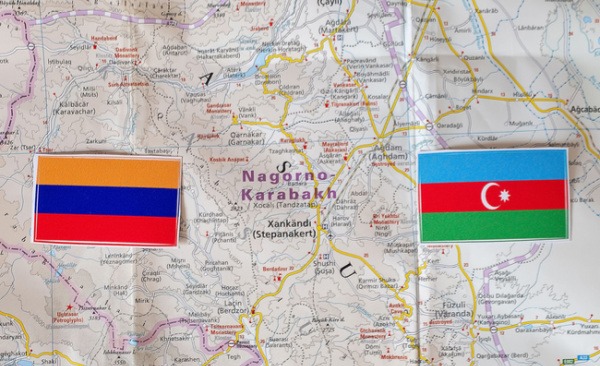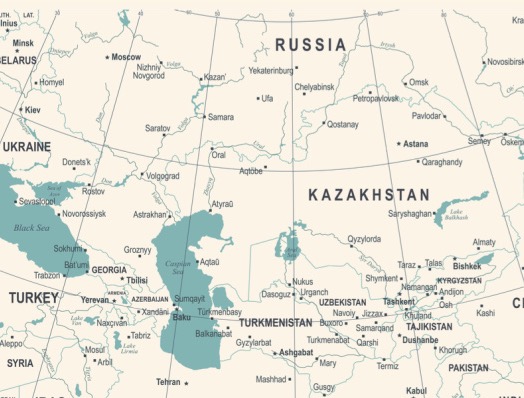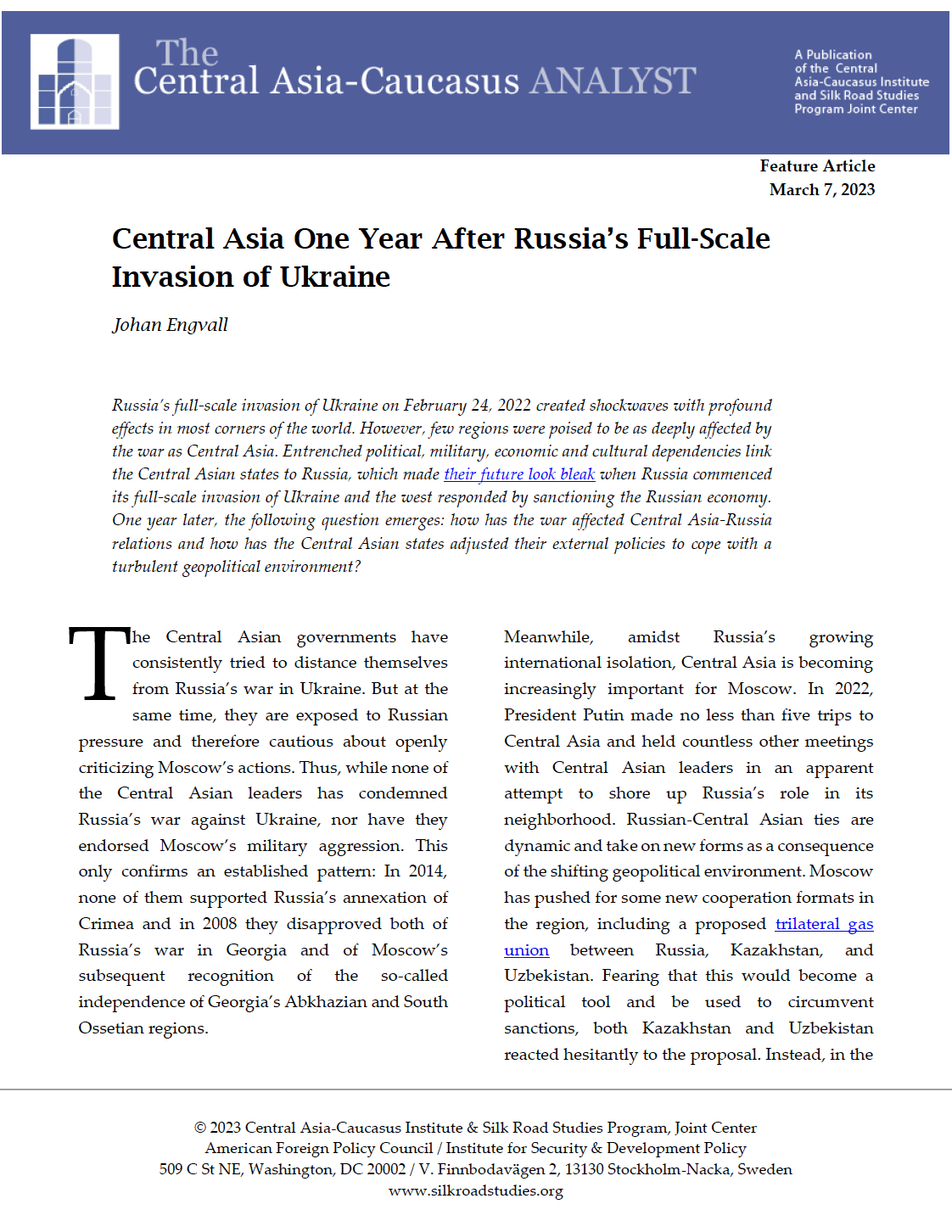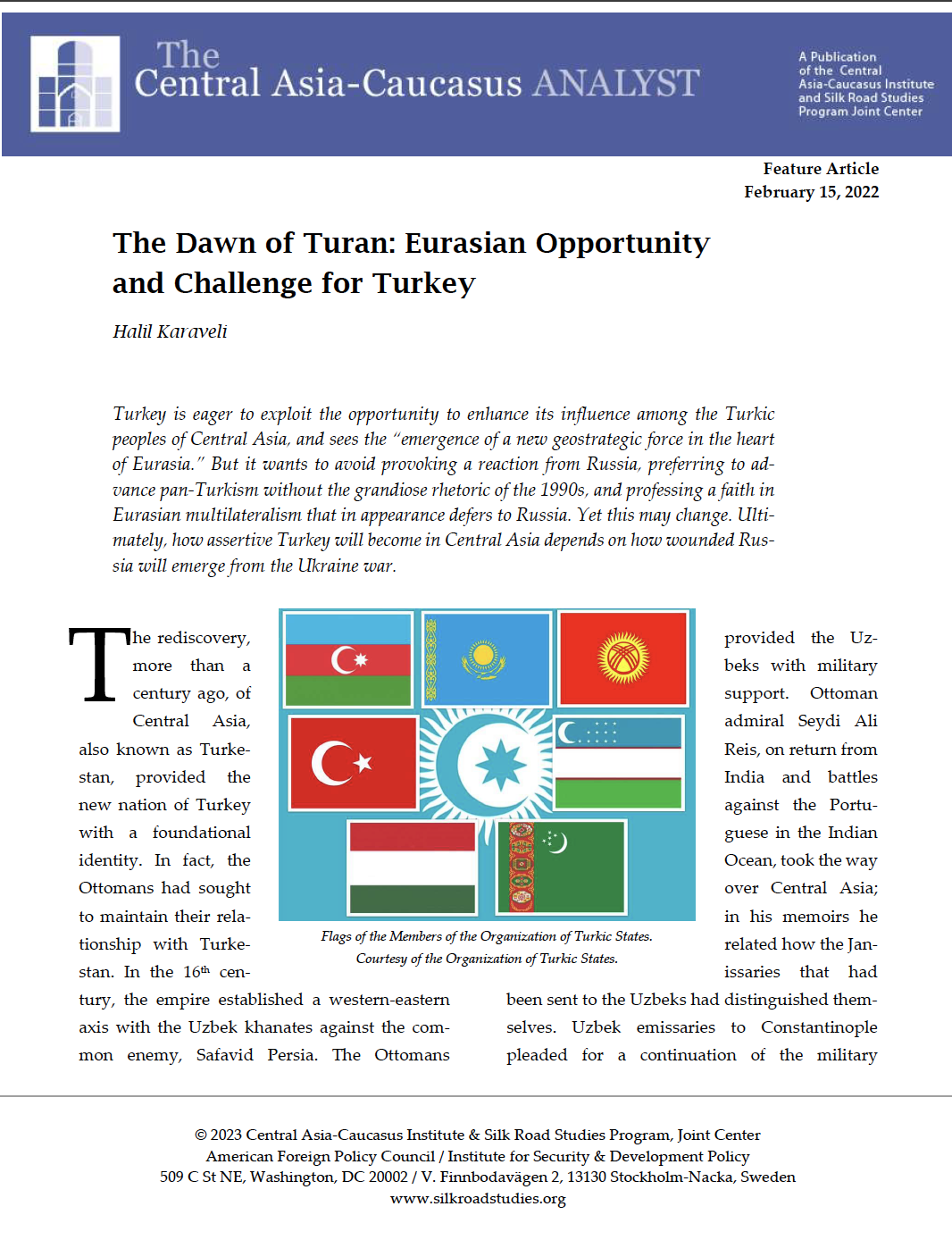Is it America’s Hour in the Caucasus?
By Stephen Blank
July 10, 2023
On May 4 Secretary of State Blinken announced that the negotiations between Armenia and Azerbaijan had made progress and that an agreement that would terminate the thirty-year war over Nagorno-Karabakh was “within reach.” While much more negotiation is obviously necessary and will be difficult, this announcement, if true, is an epochal one whose ramifications spread from Europe to the Middle East and Central Asia. It also reflects the fact that security in the Caucasus cannot be considered separately from a discussion of international order in those three regions. If Washington can broker or mediate an end to this war it, with the support of the EU whose prior initiative has been the basis for its approach, will become the primary foreign power and even possibly security manager in the Caucasus.

Russia's Weakened Influence in Central Asia and the Caucasus
By Alexander Yeo and Emil Souleimanov
July 6, 2023
Russia has long been a regional hegemon, able to actively exert hard and soft power over many of its neighbors, the Central Asian and South Caucasian states among them. However, since the start of Russia’s full-scale invasion of Ukraine, this influence has weakened, with military and economic resources being diverted to an increasingly protracted and unpredictable war effort. This has led to a shift in regional power balances, as showcased by Azerbaijan’s ascendancy in the South Caucasus, as well as economic challenges including the difficult choices faced by the allies of an increasingly isolated Russia.

Central Asia One Year After Russia’s Full-Scale Invasion of Ukraine
By Johan Engvall
March 7, 2022
Russia’s full-scale invasion of Ukraine on February 24, 2022 created shockwaves with profound effects in most corners of the world. However, few regions were poised to be as deeply affected by the war as Central Asia. Entrenched political, military, economic and cultural dependencies link the Central Asian states to Russia, which made their future look bleak when Russia commenced its full-scale invasion of Ukraine and the west responded by sanctioning the Russian economy. One year later, the following question emerges: how has the war affected Central Asia-Russia relations and how has the Central Asian states adjusted their external policies to cope with a turbulent geopolitical environment?
The Dawn of Turan: Eurasian Opportunity and Challenge for Turkey
By Halil Karaveli
February 15, 2022
Turkmenistan Lifts Its Head
By S. Frederick Starr
December 2, 2022
In recent months Turkmenistan has emerged from its self-imposed shell. Under its new president, Serdar Berdimuhamedov, it has launched a very active, though still cautious, foreign policy. While reaffirming its neutral status, which the UN recognized in 1995, it has intensified its relations with all the global powers and, significantly, with its neighbors as well. Both the U.S. and EU have applauded these initiatives and the new president’s strategic concept that underlies them. However, events unfold, Turkmenistan has decisively lifted its head, and will henceforth be a significant factor in regional and continental affairs and not simply a perplexing outlier.





